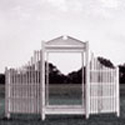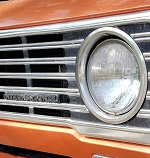|
Astonishing Wang posted:You'll be fine, just make sure you get a sensor that is at least as good as the OEM. I used a bosch sensor in my jeep and it didn't fix it - put in the NTK sensor and all was well.
|
|
|
|

|
| # ? Apr 23, 2024 17:54 |
|
O2 sensors can be pretty finicky and I wouldn't get anything other than OEM (or OEM equivalent from the same manufacturer) knowing what I know now.
|
|
|
|
Parts Kit posted:2002 Ford Escape, v6 engine: engine light came on, code indicates one of the upstream 02 sensors is bad. Local chains want $45 per sensor for what is $25 per on Rockauto or Amazon. Would it be risky to the engine to operate it as is while the parts come in or would lovely gas mileage be the only concern? We're talking a week, tops. Replace the sensor, but if you have the 4.0 and the problem comes back with the same or a different sensor, I may have bad news for you.
|
|
|
|
Am I right in thinking cars generally get better mileage at lower elevations? I'm thinking more oxygen, more complete combustion, more power for the fuel, further distance for a given amount of fuel. Assuming you don't have it tuned specifically for high elevation.
|
|
|
|
22 Eargesplitten posted:Am I right in thinking cars generally get better mileage at lower elevations? I'm thinking more oxygen, more complete combustion, more power for the fuel, further distance for a given amount of fuel. Assuming you don't have it tuned specifically for high elevation. I'm reasonably sure that, within some sane altitude range, your O2 sensor will tell your ECU how to compensate for the amount of available oxygen per combustion cycle.
|
|
|
|
Caveat to the above: at higher elevations the lower oxygen content makes gasoline harder to burn, and 87 starts to act like mid-grade (89/91.) If you drive into a higher elevation with a tank of 87 you likely will see a decrease in fuel economy.
|
|
|
|
Actually the knock sensor controls most of that stuff and you get better/worse mileage because the ignition timing and air:fuel is being adjusted. The O2 sensor only controls open loop poo poo like a:f at idle which doesn't amount to a significant fuel consumption factor. E: For example at high altitude with the same air:fuel as a lower altitude the engine would knock *LESS* (sorry). In knock situations the timing would be retarded to safeguard the motor. E2: sorry, my bad. Corrected. VelociBacon fucked around with this message at 18:38 on Jun 24, 2015 |
|
|
|
VelociBacon posted:Actually the knock sensor controls most of that stuff and you get better/worse mileage because the ignition timing and air:fuel is being adjusted. The O2 sensor only controls open loop poo poo like a:f at idle which doesn't amount to a significant fuel consumption factor. Well open loop strictly means the O2 sensor is not being used to control the engine sooooo.... But no, O2 sensor is constantly being used to control the engine at all conditions after sensor light-off, except maybe if there is some special fueling strategy, like at WOT, for example.
|
|
|
|
22 Eargesplitten posted:Am I right in thinking cars generally get better mileage at lower elevations? I'm thinking more oxygen, more complete combustion, more power for the fuel, further distance for a given amount of fuel. Assuming you don't have it tuned specifically for high elevation. I'm going to guess that it's the opposite. Higher elevations may limit the power output of your engine a bit, but they also have less drag. The thermodynamic efficiency of your engine shouldn't really be affected, it will produce less power, but should also burn less fuel as it breathes less air. Airliners don't fly up high for giggles and shits, they do it so they have to push less air around. It's probably more complicated than that and will vary based on engine control tech and body shape, though.
|
|
|
|
Oops i got the term backwards with Open/Closed loop but my (turbo) cars only use O2 sensors to control your idle air:fuel and to tell you if your cat is going bad. My understanding is that the engine under load switches to using a premapped grid to determine air:fuel mixture and receives input from the MAF/MAP to see how much air is being delivered to see how much fuel to use and knock sensors to adjust ignition timing.
|
|
|
|
Safety Dance posted:I'm reasonably sure that, within some sane altitude range, your O2 sensor will tell your ECU how to compensate for the amount of available oxygen per combustion cycle. What does sane mean? 0-5000? 0-9000? Geoj posted:Caveat to the above: at higher elevations the lower oxygen content makes gasoline harder to burn, and 87 starts to act like mid-grade (89/91.) If you drive into a higher elevation with a tank of 87 you likely will see a decrease in fuel economy. I guess that's why we get 85 up here, then. I thought it was just gas companies being as cheap as they could get away with. E: is the height you'll actually get outside of the Himalayas going to make a drag difference? Planes are up at ~50,000. I know someone on here said that cars at Bandomere in Denver generally are a second or two slower on their runs than at sea level. 22 Eargesplitten fucked around with this message at 18:20 on Jun 24, 2015 |
|
|
|
The reason people run higher octane at higher elevations is so the engine doesn't have to retard it's ignition timing as much. Higher octane always allows for a more advanced ignition timing if the engine is capable of making those changes but the benefits at high elevation are likely a lot more noticeable, especially for forced induction cars.
|
|
|
|
22 Eargesplitten posted:What does sane mean? 0-5000? 0-9000? "Sane" meaning that a modern ECU will adjust the amount of gasoline injected into the cylinder for a given mass of air at a given throttle position and engine speed based on analysis of the exhaust gasses, within the limits of the ECU, fuel pump, and injectors. In a properly engineered and tuned vehicle, that should work from - a few hundred to + a few thousand feet above sea level, at most reasonable outside temperatures, in most reasonable weather conditions. Basically, you're not going to have to re-jet your carburetors to cross the Rockies.
|
|
|
|
But we get lower octane at our pumps, not higher. I haven't ever even seen 93 around here. E: that was for Velocibacon.
|
|
|
|
I wouldn't use a drag strip's times as a measure of fuel efficiency. It's already pretty clear that you will operate at a lower power level without boost. The question is if the reduced drag will outweigh the various inefficient ways that ECUs deal with higher altitude.
|
|
|
|
22 Eargesplitten posted:But we get lower octane at our pumps, not higher. I haven't ever even seen 93 around here. Ya as someone said, the lower octane is fine at the higher altitudes because you are running much different air:fuel ratios so you won't have as much risk of detonation and don't NEED the higher octane. Its almost never worth buying premium octane if you have a naturally aspirated motor. Sorry if my wording was confusing earlier.
|
|
|
|
What are AI's general thoughts on LED replacement bulbs? Most important is I want brighter brake lights on my Suburban since red lights on a red truck don't stand out as much in the daytime. Looking at these in particular, in red of course. I'm toying with the idea of swapping out all lighting on both my cars with LEDs, but I'll keep the turn signals stock since I don't wanna have to complicate things with resistors to keep the turn signals from hyperflashing, and I prefer the softer on/off effect of incandescent lights for flashing turn signals anyway. Also I know of AI's opinion of HID replacements for halogen headlights, and I'm guessing that applies to LEDs as well so I'm leaving them stock.
Friar Zucchini fucked around with this message at 19:37 on Jun 24, 2015 |
|
|
|
Enourmo posted:Generally on any electrical work you're supposed to disconnect the cable just so you don't get transient current spikes loving anything up. That said, on a truck of that vintage I think you'd be fine just leaving it as is, it's not like 12V is hazardous (outside of short circuits/arcing causing fires, i mean the voltage itself) and it's not like it has a whole lot of OBD2 monitors to reset either way. Duuuude. Thank you so much for your suggestions. I just pulled the vacuum hose and trimmed off the ~3/8" that was splitting and stuck it back in. CRUISE CONTROL WORKS AGAIN. I'm going to wait on the instrument cluster pull until after my 600 mi. round trip in mid-July since my engine temp gauge is operational now and I'd hate to inadvertently break that while chasing the intermittent speedo issue. Once again, thanks! 
|
|
|
|
Friar Zucchini posted:What are AI's general thoughts on LED replacement bulbs? Most important is I want brighter brake lights on my Suburban since red lights on a red truck don't stand out as much in the daytime. Looking at these in particular, in red of course. I'm toying with the idea of swapping out all lighting on both my cars with LEDs, but I'll keep the turn signals stock since I don't wanna have to complicate things with resistors to keep the turn signals from hyperflashing, and I prefer the softer on/off effect of incandescent lights for flashing turn signals anyway. Also I know of AI's opinion of HID replacements for halogen headlights, and I'm guessing that applies to LEDs as well so I'm leaving them stock. Those bulbs suck. They don't emit a wide pattern of light and you end up with this tiny red dot. Those are expensive for a bulb so perhaps they're a little brighter but you won't look like a modern car or LED lights. You're better off with something like this: http://www.xtralights.com/00-06chev...tu_QhoCaUXw_wcB but it's expensive! You can eliminate hyperflashing of the signals by going to an electronic flasher, not really much effort in that. If you're really crafty you can get some LED universal Stop/Turn/Tail lights and disassemble them and set them inside of your current housings, but it's still not cheap and you have to find the right ones that can be taken apart. I tried and failed when the model I bought was set in resin.
|
|
|
|
Friar Zucchini posted:What are AI's general thoughts on LED replacement bulbs? Most important is I want brighter brake lights on my Suburban since red lights on a red truck don't stand out as much in the daytime. Looking at these in particular, in red of course. I'm toying with the idea of swapping out all lighting on both my cars with LEDs, but I'll keep the turn signals stock since I don't wanna have to complicate things with resistors to keep the turn signals from hyperflashing, and I prefer the softer on/off effect of incandescent lights for flashing turn signals anyway. Also I know of AI's opinion of HID replacements for halogen headlights, and I'm guessing that applies to LEDs as well so I'm leaving them stock. I've seen those sold a few times at work and about 60% of the time, they come back for just flat out not working. They feel unbelievably cheap and crappy (You feel like you're going to break the things just getting them out of the little "Try me!" tester they com in) and I have yet to see someone satisfied with them.
|
|
|
|
22 Eargesplitten posted:Am I right in thinking cars generally get better mileage at lower elevations? I'm thinking more oxygen, more complete combustion, more power for the fuel, further distance for a given amount of fuel. Assuming you don't have it tuned specifically for high elevation. Ultimately it's probably a wash. A car in Denver takes less gasoline per cycle at a constant throttle position due to the air density, but as a reaction the driver opens the throttle further than they would at sea level, allowing more air in the motor, in order to wring more power out of the car, and more gas is used.
|
|
|
|
StormDrain posted:Those bulbs suck. They don't emit a wide pattern of light and you end up with this tiny red dot. Those are expensive for a bulb so perhaps they're a little brighter but you won't look like a modern car or LED lights. You're better off with something like this: http://www.xtralights.com/00-06chev...tu_QhoCaUXw_wcB but it's expensive! edit: I'd thought I'd test the brake lights out to see if the LEDs last and if they held up for a couple months then I'd finish off both cars with them, but on second thought it might be a better idea to try something less crucially important than brake lights. I may have the one single GMT800 in existence with both DRLs fully functional, which is nice, but they're not super important, so I might use those for my LED test. They technically use a different bulb, but the same one above still fits. Friar Zucchini fucked around with this message at 22:51 on Jun 24, 2015 |
|
|
|
Friar Zucchini posted:I was looking at the ones I mentioned because they do put out a wide pattern of light. I know the narrow beam ones you're talking about and I'm staying away from those since they don't have side-facing LEDs to light up the reflector. As far as light output, I'm seeing standard 3157 bulbs as putting out 402 lumens, and that one is the brightest one that seller offers, rated at 550. I've seen the ones you listed before and I like them but I prefer a stock appearance, definitely not going for styling or a modern LED appearance - those are more expensive and all I want is more light, or at least faster illumination. I just wedged a bottle onto the brake pedal and took a look at the lights and they do leave something to be desired. Maybe just go for one brake light then - there's still the CHMSL and the other one if they go bad, and check it every time you're at a storefront in the reflection. I hear what you're saying though, the aftermarket housings are on the tacky end of the spectrum, the clear and chrome ones especially, smoked less so, red being the best in my mind, and they're expensive. Just at least go into it gently and only spend $30 instead of buying a full set. My experience was a multi-faceted bulb like yours but shorter, in stock housings. They illuminated as well as the incandescent bulbs they replaced with the side effect of being pink since I didn't get colored bulbs, and giving a weird light pattern with hot spots. I replaced them all with a universal side marker cut down to fit the stock housing and it was a very dramatic difference. Look at the light they throw on the ground on the logs and shed on the right, the incandescent bulbs didn't do that. 
|
|
|
|
My check engine light came on with my 2005 Kia Spectra EX yesterday. I tried tightening my gas cap, but that didn't fix it. So, I went and got a new gas cap and swapped it out. At the auto store, they ran a quick diagnostic and said that an EVAP code was appearing. If it matters, the car seems to be running fine, and I just did an 8 hour road trip with it last weekend for Father's Day with no issues. I have a full tank of gas, how much driving do I need to do to get the car's computer to run a new diagnostic? I'd kinda like to do that in case it was just the gas cap before I take it to a mechanic for inspection, but if that means driving the car for a month at the risk of loving up an important part, probably not worth it.
|
|
|
|
surf rock posted:My check engine light came on with my 2005 Kia Spectra EX yesterday. I tried tightening my gas cap, but that didn't fix it. So, I went and got a new gas cap and swapped it out. At the auto store, they ran a quick diagnostic and said that an EVAP code was appearing. If it matters, the car seems to be running fine, and I just did an 8 hour road trip with it last weekend for Father's Day with no issues. Did they reset the codes? You might need them reset before doing the new diag. Here is a link to how to do a drive cycle.
|
|
|
|
VelociBacon posted:Did they reset the codes? You might need them reset before doing the new diag. Ah, drat. Not only did they not reset the codes, but the gas tank is full, so I can't run this test. Sounds like I do need to go to the mechanic if I don't want to risk something like the catalytic converter getting hosed up, drat.
|
|
|
|
surf rock posted:Ah, drat. Not only did they not reset the codes, but the gas tank is full, so I can't run this test. Sounds like I do need to go to the mechanic if I don't want to risk something like the catalytic converter getting hosed up, drat. Unless you can smell a lot of gas in your exhaust with the car idling it's very unlikely the car is running in a state that would damage the cat. It's more than likely a leaky old rubber vacuum hose somewhere around your fuel tank or something, it'll possibly effect your mileage but that's about it.
|
|
|
|
Putting the final touches on the old Lexus RX 300, getting ready to sell. Have an ozone treatment and interior detail scheduled for Friday morning, and then I'm going to start posting ads online to sell. (BTW, if you want to buy it from me, I'm in Dallas, send me a PM). Does anyone remember a post in AI (maybe in this thread) with a guide to selling a car as a private party? I've never done that before, always traded in my vehicle when getting a new one.
|
|
|
|
Not necessarily. Your evap codes refer to the fuel evap system which just takes the excess fuel vapor from your tank and stores it to burn later while driving. It generally won't damage anything short term and can be caused by something as simple as a faulty sensor/solenoid or a pinhole leak.
|
|
|
|
2008 Hyundai Sonata. I just got a wheel alignment after nailing a really bad pothole. My buddy is helping me replace brake pads tonight, and struts sometime this weekend. Did I screw up in getting the alignment before those two things? Luckily the alignment does have a 6 month warranty, but i'm curious if either of those repairs will gently caress up the alignment.
|
|
|
|
Crunkjuice posted:2008 Hyundai Sonata. I just got a wheel alignment after nailing a really bad pothole. My buddy is helping me replace brake pads tonight, and struts sometime this weekend. Did I screw up in getting the alignment before those two things? Luckily the alignment does have a 6 month warranty, but i'm curious if either of those repairs will gently caress up the alignment. No idea what the suspension setup is on that but as long as the struts won't change the height of the car then it shouldn't cause a problem. If you have to touch anything camber related just try to take measurements and replicate I guess. If it does change the height then you're probably changing wheel angle, so technically yes you may need another alignment.
|
|
|
VelociBacon posted:Ya as someone said, the lower octane is fine at the higher altitudes because you are running much different air:fuel ratios so you won't have as much risk of detonation and don't NEED the higher octane. Its almost never worth buying premium octane if you have a naturally aspirated motor. Sorry if my wording was confusing earlier. Haha what? This is hilariously untrue. Most modern engines are designed to run 95RON+ (adjust rating accordingly for baffling american ratings). They can run lower octanes thanks to the magic of knock sensors (indeed, you could run practically anything and it wouldn't hurt the engine) but with power and economy penalties; I've lost track of the number of people showing up at my work complaining about pinging because the nice salesman told them their 11:1 CR dual VVTI car will be fine on 91. Crunkjuice posted:2008 Hyundai Sonata. I just got a wheel alignment after nailing a really bad pothole. My buddy is helping me replace brake pads tonight, and struts sometime this weekend. Did I screw up in getting the alignment before those two things? Luckily the alignment does have a 6 month warranty, but i'm curious if either of those repairs will gently caress up the alignment. It'll be fine, don't worry.
|
|
|
|
|
Slavvy posted:Haha what? This is hilariously untrue. Most modern engines are designed to run 95RON+ (adjust rating accordingly for baffling american ratings). They can run lower octanes thanks to the magic of knock sensors (indeed, you could run practically anything and it wouldn't hurt the engine) but with power and economy penalties; I've lost track of the number of people showing up at my work complaining about pinging because the nice salesman told them their 11:1 CR dual VVTI car will be fine on 91. A one off high compression NA motor is one of the things that falls outside of "almost never" being worth buying premium octane. 95% of the normally aspirated motors on the road today won't ping with 87AKI fuel in them.
|
|
|
|
2001 Saturn L200 2.2L 4-cylinder, 100K. Car completely failed to start after pumping gas, electrics and ignition fine, engine emits a high-pitched whine when trying to turn over. Two random passers-by and the towing truck guy both said, "That's a broken timing chain!" without hesitation. Royal Chevrolet engineer didn't mention timing chain at all as part of his diagnosis and simply said that he ran a compression test and all four cylinders were running 30 dry and 60 wet and need to be around 90-100. Cost he quoted for a replacement engine (no mention of mileage) is $5000 + tax. I'm thinking "gently caress that!" and that it's time to get a new car. Does the engineer's assessment sound fair? He didn't say what had caused the decompression (it's a non-interference engine, so a broken timing chain wouldn't/shouldn't have caused the engine decompression), but is that normal for my car's age/mileage? (I kept the oil topped up regularly; admittedly the engine has sounded a little growlier when idling over the last year or so, but it was far from making obviously labored/knocking noises and I just put the subtle growlier sound down to it being nearly 15 years old. My car's been to the same engineer twice over the last 12 months and no one said, "Hmm, your engine's sounding a bit rough, you should probably do a compression test!" because apparently it would have been obvious to someone whose ear is attuned to such things.) Probably all moot points if I'm just gonna suck it up and get a new car anyway. I've been putting it off a year or two anyway so this is a good excuse to push me to do it. Just curious to know what you guys think. $5000 for a replacement engine sounds insane, unless it literally is a brand new engine. Googling around for five minutes suggests $1500 for something used in the 60-90K range, $1000 for $100K. Retroblique fucked around with this message at 21:55 on Jun 25, 2015 |
|
|
|
$5000 probably has a warranty longer than a month, if the junkyard specials even have one. It is a 14 year old car, so you have to decide if keeping it on the road in its current condition is worth it, or if you can put a junkyard engine in and sell it for a profit.
|
|
|
|
$5000 includes labor, I hope, and probably also a healthy "gently caress you for making me work on a Saturn" tax. If you magically managed to have a chain that got just sloppy enough that it jumped a few teeth, that could explain the low compression across the board. But unless you're willing to dive deep into that engine to second-guess the mechanic, I would take 30-60 PSI compression readings as a very big sign that it's time to park that car. $5k and some haggling should be able to get you a decent example of a 2003-2007 Accord, which would be better in just about every way.
|
|
|
VelociBacon posted:A one off high compression NA motor is one of the things that falls outside of "almost never" being worth buying premium octane. 95% of the normally aspirated motors on the road today won't ping with 87AKI fuel in them. No, you're wrong. The overwhelming majority of modern petrol engines aren't designed with lower octanes in mind and it says so in the owner's manual. Maybe it's different in the states but higher cr is a surefire way to increase power and economy whilst reducing emissions so most petrol engines have at least 10:1 nowadays.
|
|
|
|
|
Higher compression definitely isn't the norm for American market vehicles. Even Mazda nerfed their high compression engines because people here can't be hosed to buy high octane gas for vehicles that need it most of the time.
|
|
|
|
Slavvy posted:No, you're wrong. The overwhelming majority of modern petrol engines aren't designed with lower octanes in mind and it says so in the owner's manual. Maybe it's different in the states but higher cr is a surefire way to increase power and economy whilst reducing emissions so most petrol engines have at least 10:1 nowadays. I'm in Canada but we get the same cars. I'm not arguing that you wouldn't see some improvement from running a higher octane fuel, I'm just saying that you aren't going to damage the motor by running it on lower octane. They just retard the timing to adjust for it. I'm talking about popular and very average cars like the impreza, camry, civic, golf, wrangler, caravan, etc. All of these don't recommend anything over 87-89 octane (AKI) for the 2015 models and these are the types of cars that populate the vast majority of road going vehicles. EightBit posted:Higher compression definitely isn't the norm for American market vehicles. Even Mazda nerfed their high compression engines because people here can't be hosed to buy high octane gas for vehicles that need it most of the time. Is this the skyactiv engine? I think I heard about this, that's too bad.
|
|
|
|

|
| # ? Apr 23, 2024 17:54 |
|
Yeah, people get seriously miffed at the idea of spending ~30 cents more per gallon for a higher compression engine. It's such a marketing thing that Ford has gone so far as to rate most (all?) of the Ecoboosts on 87 octane so that they can advertise them as running on regular gas. They make more power on 91, but it lets them sell to the idiots who think anything that needs more than 87 octane must be wasting money.
|
|
|

























